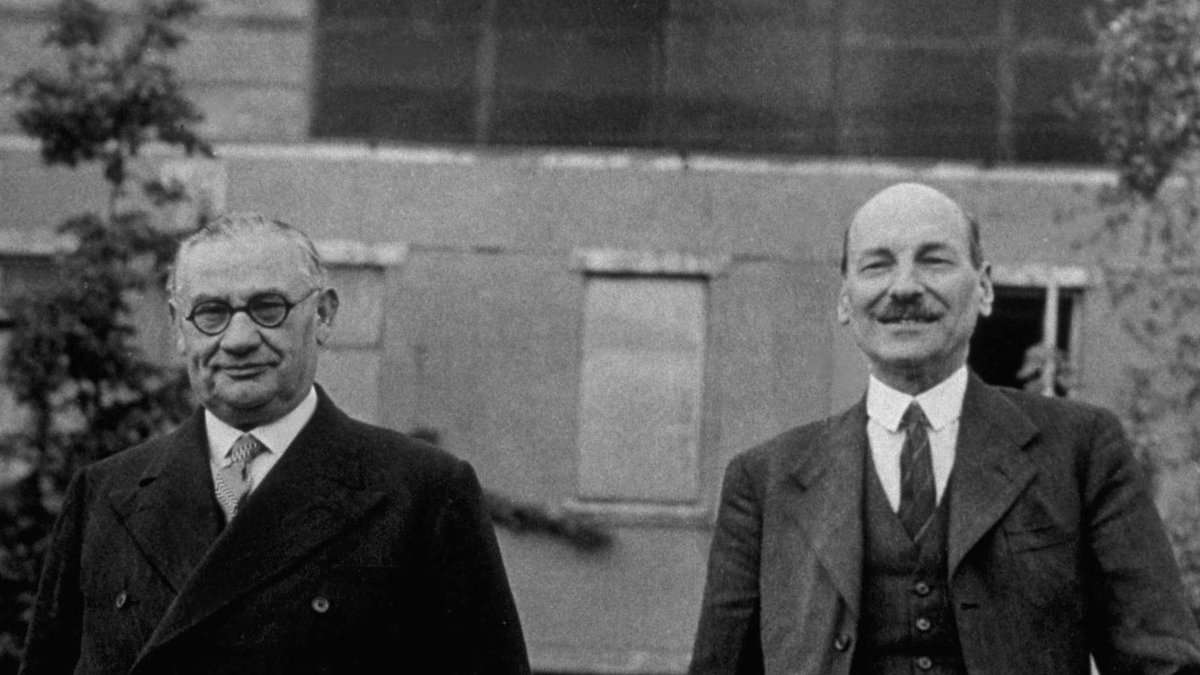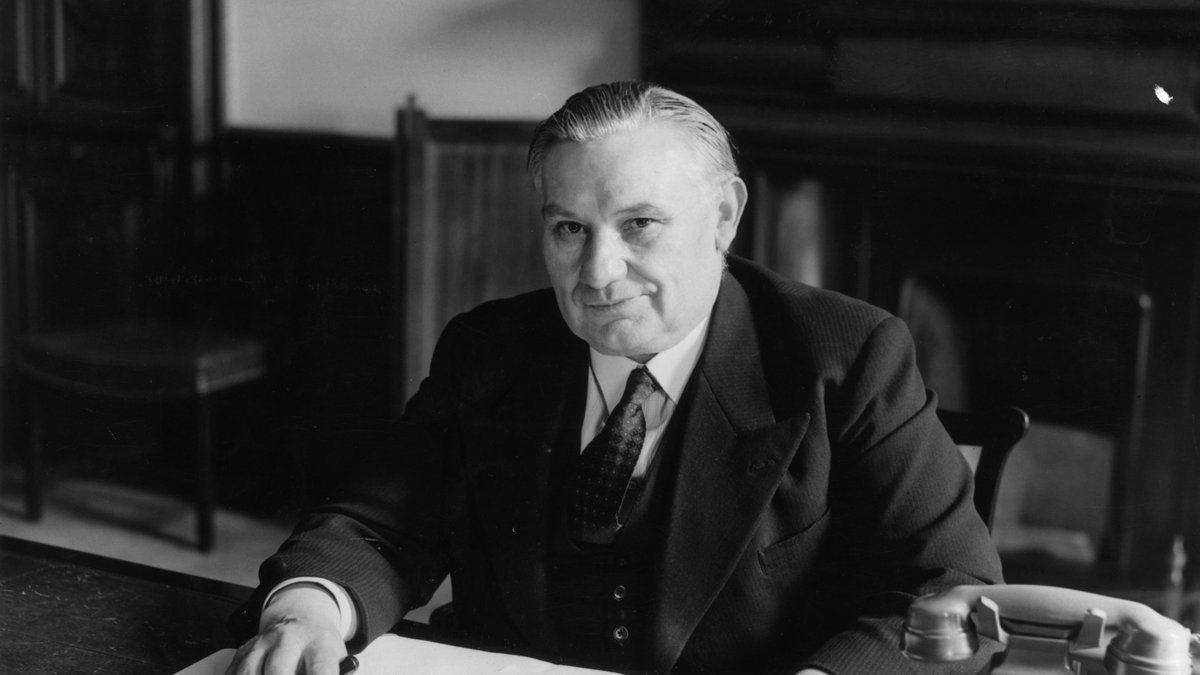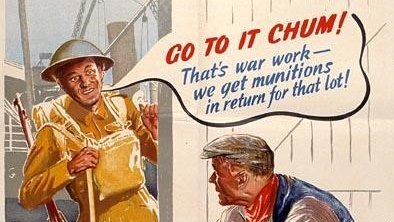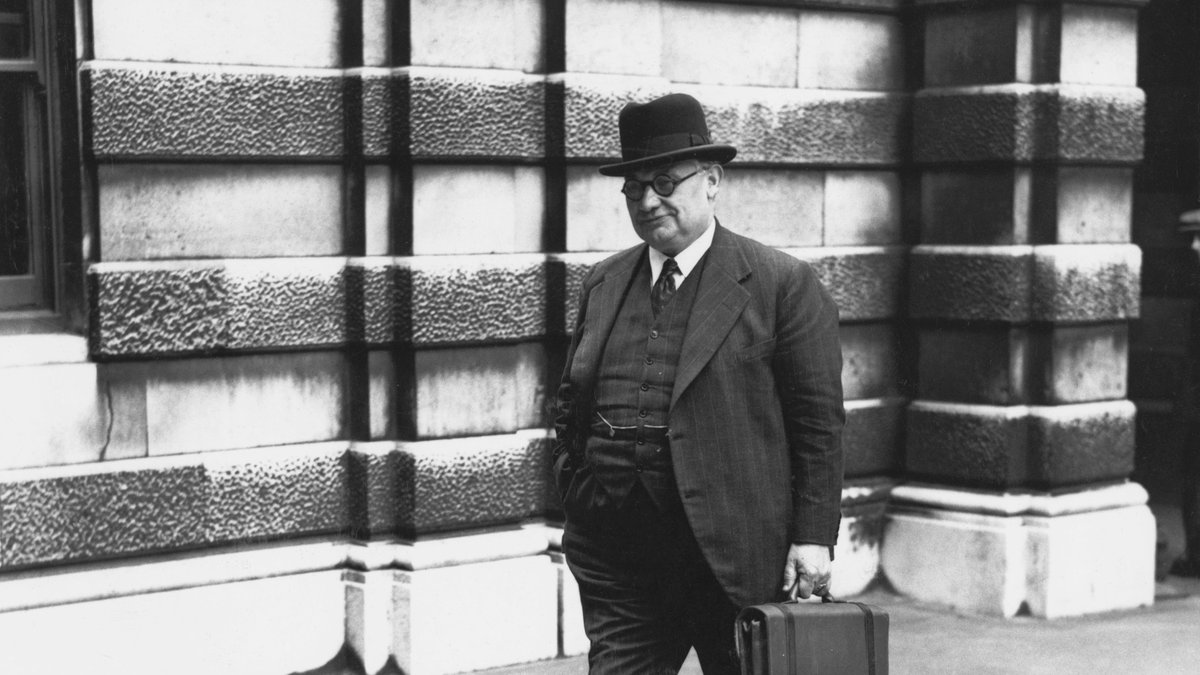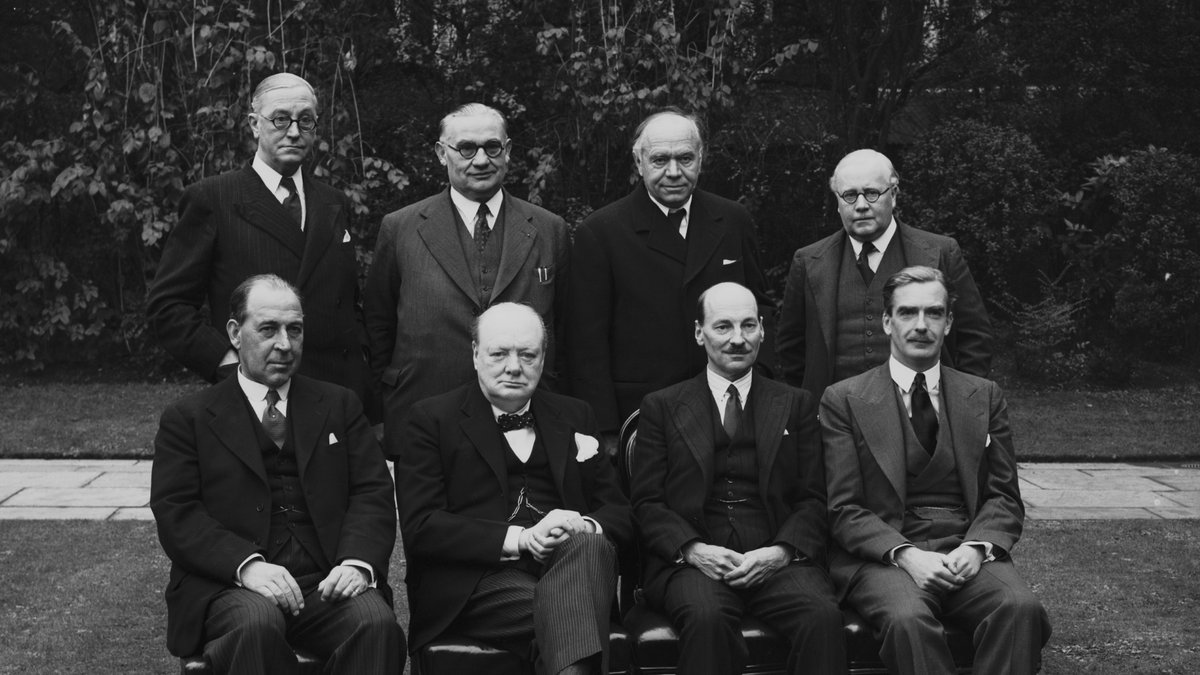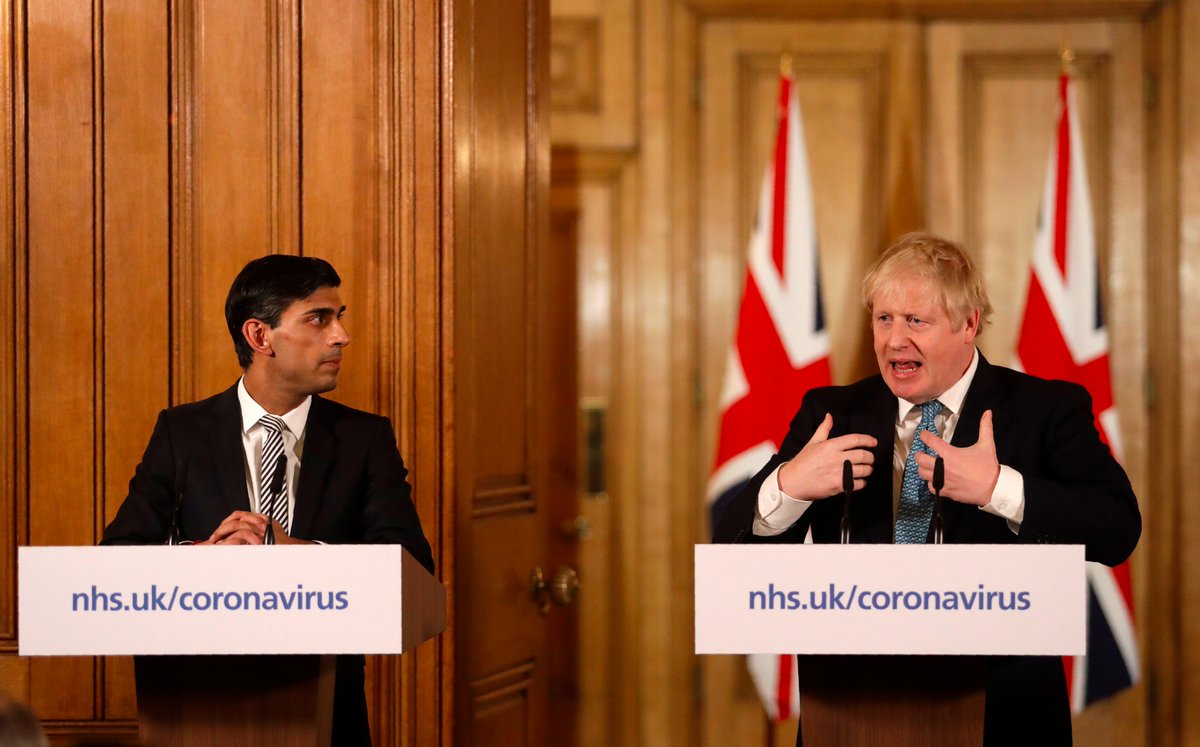There can be no return to business as usual once the #Covid19 crisis is over.
It& #39;s time for government, businesses and unions to come together and rebuild a country that works for everyone.
Britain& #39;s wartime and post-war history shows us how. 1/
It& #39;s time for government, businesses and unions to come together and rebuild a country that works for everyone.
Britain& #39;s wartime and post-war history shows us how. 1/
During WWII, former union leader and war minister Ernest Bevin was clear there would be no return to the inequality of the 1930s:
“This is a people’s war: it must lead to a people’s peace.”
Once we& #39;ve beaten #Covid19, we can& #39;t go back to the way things were before either. 2/
“This is a people’s war: it must lead to a people’s peace.”
Once we& #39;ve beaten #Covid19, we can& #39;t go back to the way things were before either. 2/
As minister for labour, Bevin helped to pull everyone behind the war effort.
Bevin knew the key to high productivity was worker wellbeing and commitment.
So fair wages, staff canteens and shorter working hours were as important to him as planning the wartime economy. 3/
Bevin knew the key to high productivity was worker wellbeing and commitment.
So fair wages, staff canteens and shorter working hours were as important to him as planning the wartime economy. 3/
Everything Bevin did was informed by a joint consultation committee that brought government, trade union and business leaders together on equal terms.
They met 30 times in its first 18 months and continued to meet into the postwar period as Britain recovered. 4/
They met 30 times in its first 18 months and continued to meet into the postwar period as Britain recovered. 4/
After the war Britain was bruised and bloody but unbowed. We really had come through it together.
So let’s take a lesson from the last time we had to rebuild from the ground up.
It& #39;s time to bring together unions, businesses and government again in the national interest. 5/
So let’s take a lesson from the last time we had to rebuild from the ground up.
It& #39;s time to bring together unions, businesses and government again in the national interest. 5/
Today& #39;s unions were instrumental in delivering the job retention scheme.
With the chancellor and the CBI, we worked quickly to protect as many jobs and livelihoods as possible.
While not perfect, without the scheme claims for universal credit would have been even higher. 6/
With the chancellor and the CBI, we worked quickly to protect as many jobs and livelihoods as possible.
While not perfect, without the scheme claims for universal credit would have been even higher. 6/
To carry on this vital work, we& #39;re calling for a National Council for Reconstruction and Recovery, with unions and business in a formal advisory role.
We& #39;re asking the government to give us an equal voice, to listen to our ideas and ensure workers aren& #39;t left behind. 7/
We& #39;re asking the government to give us an equal voice, to listen to our ideas and ensure workers aren& #39;t left behind. 7/
If you want to rebuild a country that works for everyone, you can& #39;t separate the needs of workers from those of the economy.
We need unions in the room sharing power and shaping decisions.
And just like during WWII, we& #39;re ready to get to work. 8/8 https://www.thetimes.co.uk/edition/comment/we-need-a-national-council-of-reconstruction-to-rebuild-the-country-29b0j2fzl">https://www.thetimes.co.uk/edition/c...
We need unions in the room sharing power and shaping decisions.
And just like during WWII, we& #39;re ready to get to work. 8/8 https://www.thetimes.co.uk/edition/comment/we-need-a-national-council-of-reconstruction-to-rebuild-the-country-29b0j2fzl">https://www.thetimes.co.uk/edition/c...

 Read on Twitter
Read on Twitter